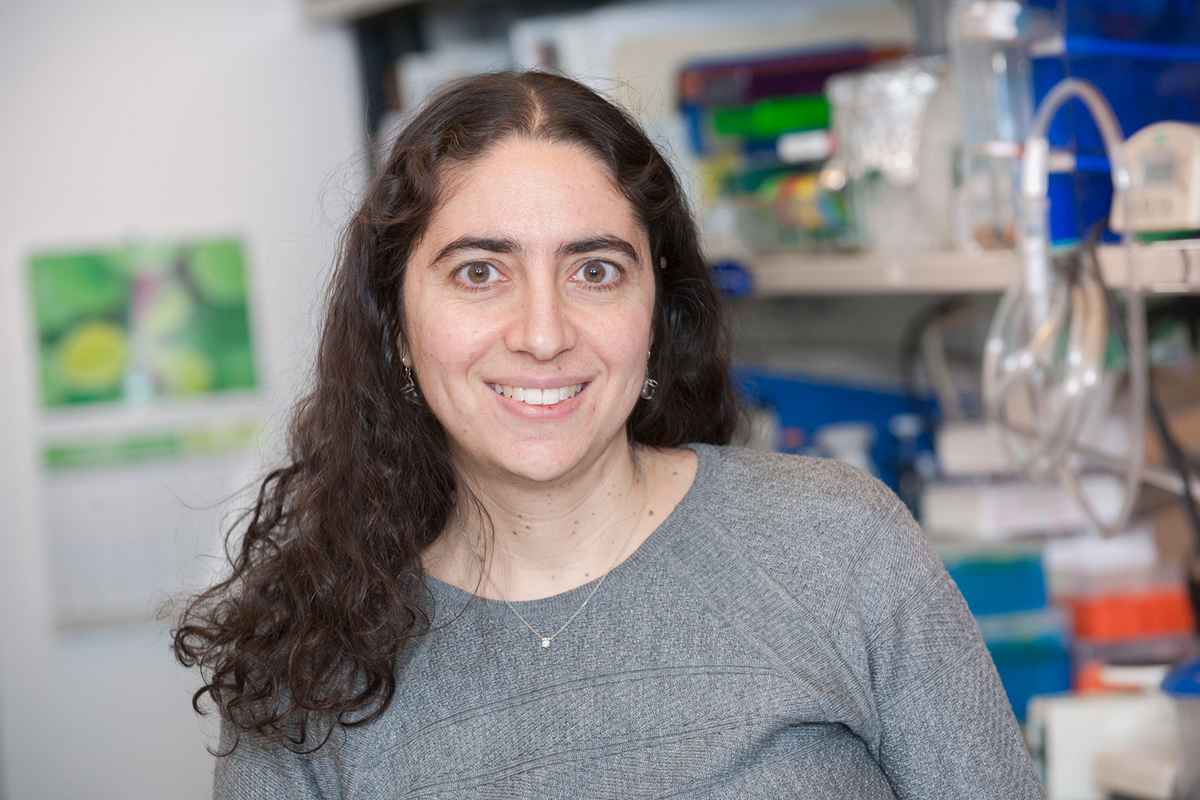
People with an aggressive type of colorectal cancer now have an important new treatment option. The US Food and Drug Administration has approved a combination of two targeted cancer drugs that can help these patients live longer without increasing their risk of serious side effects.
Memorial Sloan Kettering had a leading role in the research that developed this combination therapy. The treatment was approved on April 8.

The drugs, encorafenib (Braftovi®) and cetuximab (Erbitux®), have been shown to be effective when given in combination to people with tumors that have a mutation called BRAF V600E. About 8% to 10% of all people with colorectal cancer have a BRAF V600E mutation in their tumor. BRAF is a protein that helps cells grow and survive. A BRAF V600E mutation can cause a cell to start growing uncontrollably and lead to cancer.
The FDA approval came after encouraging results in a phase III clinical trial of the two-drug combination in people with BRAF V600E–mutated colorectal cancer.
Medical oncologist Rona Yaeger, who played an integral part in testing the therapy, discusses the treatment and what it means for people with colorectal cancer.
How does the new treatment change the outlook for people with this type of colorectal cancer?
It’s a big improvement because this cancer type is very aggressive after it spreads [metastsizes] and other treatments have failed. People whose tumors have the BRAF V600E mutation have a poor outlook. The median survival time after unsuccessful initial therapy is just four to six months, and they often have uncomfortable symptoms, such as abdominal swelling or bowel blockage. The trial showed that this combination therapy not only helps people live longer but can delay the development of these symptoms and improve their quality of life.
Standard treatment has been chemotherapy plus cetuximab, which has not worked well in these patients. Now we have something else to offer them. At MSK, every person with advanced colorectal cancer has their tumor tested using MSK-IMPACT™. If the tumor has the BRAF V600E mutation, we can match them to this therapy.
How does the combination therapy work?
Single drugs targeting the BRAF pathway have been effective in other cancers. MSK played a critical role in developing and testing BRAF inhibitors in melanoma and several other types of cancer under the leadership of Paul Chapman and David Hyman, respectively. But single therapies have not worked well against colorectal cancer.
The problem seems to be something called feedback activation. Neal Rosen’s laboratory performed some of the key research identifying this phenomenon. Researchers showed that targeting the main protein causing growth in a cancer cell can affect how related proteins behave.
This seems to be what happens in this subset of colorectal cancers. BRAF strongly activates tumor growth and suppresses the activity of other proteins involved in controlling cell growth. When BRAF activity is blocked, the other proteins in the pathway become activated. This enables the cancer cell to survive and grow. Understanding feedback activation led to the idea that we need combination therapies that target multiple parts of this pathway.
Encorafenib and cetuximab target different proteins in the BRAF signaling pathway. Encorafenib inhibits BRAF, and cetuximab targets EGFR, another protein that is overactive in many colorectal cancers. Giving both targeted drugs appears to overcome the cancer cells’ survival tricks.
What did the clinical trial show about the effectiveness of this targeted drug combination?
The international clinical trial involved 665 people with BRAF V600E–mutated metastatic colorectal cancer that had either returned or continued to grow after at least one previous type of treatment. I led the MSK part of the study, which enrolled the most patients of any site in the United States.
Patients were split into three groups: A control group received cetuximab plus chemotherapy, which was the standard treatment; another group received encorafenib plus cetuximab; and a third group received these two drugs plus a third drug, binimetinib (Mektovi®).
Results showed that people receiving the two-drug combination therapy lived longer than those on the standard treatment. Survival times were 9.3 months on average in the encorafenib-plus-cetuximab group and 5.9 months on average in the control group. People receiving the combination also had their tumors shrink more, had fewer side effects, and were more likely to have improvement in their quality of life.
The group receiving all three drugs had similar survival times to the two-drug group, but they had a higher risk of side effects.
What does FDA approval of the two-drug combination mean for patients?
Both the two- and three-drug regimens have already been added as a treatment option in guidelines put out by the National Comprehensive Cancer Network. So doctors can use this drug combination, but not all doctors and patients are aware of this. We are hoping that the FDA approval will raise awareness and also help gain approval of insurance coverage to allow more widespread use.


